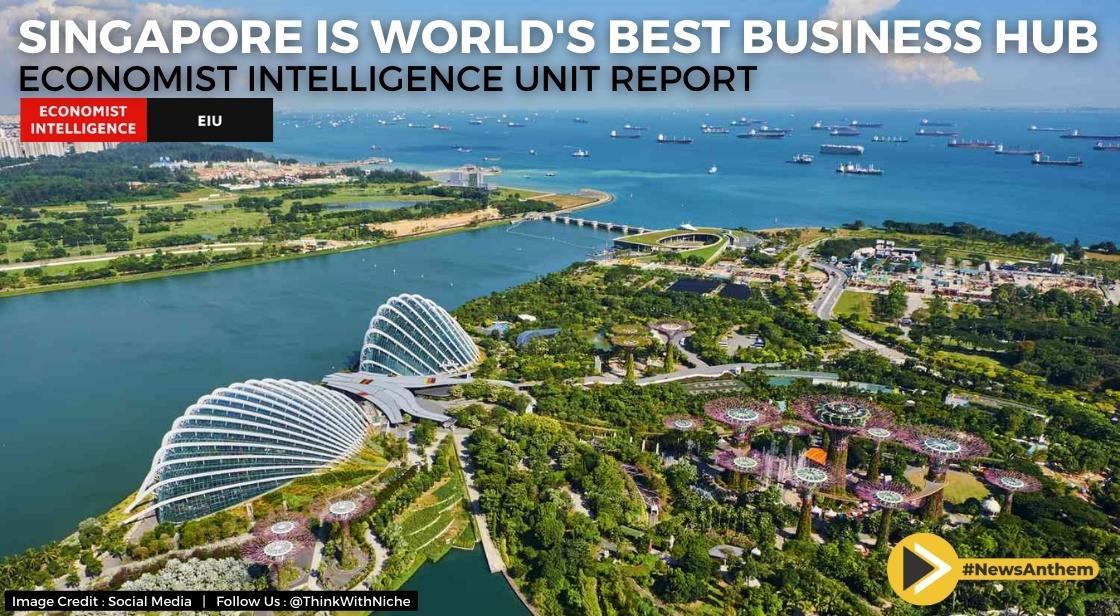India Comes Closer To Singapore In Latest Rankings For Top Business Environment

News Synopsis
India recorded a considerably better position in the most recent data from the Economist Intelligence Unit (EIU), which predicts which nations will have the greatest business environment globally for the next five years. Singapore retained its top spot, though.
According to the data, Canada and Denmark tied for second place, with the United States and Switzerland coming in at fourth and fifth, respectively.
Vietnam, Thailand, Belgium, Sweden, and Costa Rica are a few additional nations where the economic environment has significantly improved. China, Bahrain, Chile, and Slovakia, on the other hand, have shown to be less business-friendly countries. North America and Western Europe continue to be the greatest regions in the world for starting a business, according to the most recent rating of business environments. While Latin America continues to be more business-friendly than the Middle East and Africa, Asia comes in third, ahead of Eastern Europe.
Compared to China and many other nations, starting a business in India is a little easier: Report
According to the most recent rankings, among the 17 Asian nations that participated in the survey, establishing a business in India has gotten easier as the nation has risen to the sixth position internationally, moving from the 14th position in 2018–22 to the 10th position in 2023–27. India has achieved progress in foreign trade, exchange controls, infrastructure, and technological readiness ratings, which has made doing business there easier. India's market potential, supported by a sizable and expanding domestic market, are regarded as the top category.
The key factors luring investors to India are access to a sizable labor pool and strong, stable economies. Additionally, governmental changes in the nation have made it simpler to launch a firm in India.
"Over the past decade, global manufacturing supply chains have experienced a period of turbulence. Geopolitical tensions between the US and China, the rapid adoption of e-commerce, the COVID-19 pandemic, and the war between Russia and Ukraine have led to a reconsideration of strategies for shifting sourcing, diversifying supply routes, and localising production. Concerned about supply chain over-reliance on China, the "factory of the world" many companies are implementing or considering "China plus one". Strategies aimed at building production across multiple markets," according to the report .
EIU experts anticipate considerable development in sectors like infrastructure, taxation, and trade regulation in the upcoming days that will increase investment. India's advantage is mostly due to its younger population, which guarantees a strong labor force. The EIU forecasts that India's population of working age will increase by about 100 million by the end of 2030.
Is China becoming a less welcoming environment for business?
Beijing is losing support from international investors, according the most recent rating, as a result of regulatory modifications, the statist execution of economic policies, and elevated local expenses. In comparison to previous year, the aforementioned combination of circumstances has forced China to lag behind 10 other nations and take up position 11 in the worldwide list.
According to the EIU's forecast, China's population will fall by 40 million people to 950 million or less. India's median age of 28.4 is comparable to China's median age of 38.4. The government is further encouraged by the rise in population to boost industry in order to hire more people.
How is the ranking of the business environment determined?
The Economist Intelligence Unit EIU's Business climate Ranking (BER) analyzes the attractiveness of the business climate in 82 countries on a quarterly basis based on a standard analysis framework that takes into account 91 indicators. The model takes into account 11 different categories, including the macroeconomic and political climate, market possibilities, government regulations on private enterprise and competition, taxes, and the labor market.
You May Like









